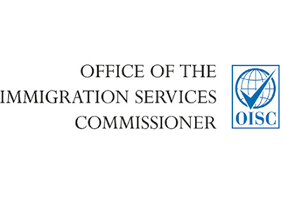The apparent objective of the reforms is to give companies and their directors time to implement changes to their businesses free from the fear of statutory risk – the basis of which has fundamentally changed. Charities which are set up as companies are treated in insolvency law as any other company, and the terms director and trustee are synonymous. We will look at these first, before considering the implications for other legal forms of charity.
For companies, there is a temporary suspension of wrongful trading provisions for company directors to remove the threat of personal liability, applied retrospectively from 1 March 2020 for a period of three months, with an acknowledgement that these changes may need to be extended.
Under the current provisions, directors are obligated to exercise reasonable skill and care when fulfilling their duties. When a company becomes insolvent (on a cash flow or balance sheet basis), the directors’ duties shift from acting in the company’s best interest to acting in the interest of the company’s creditors.
Section 214 of the Insolvency Act 1986 on wrongful trading states that where directors continue when they knew, or ought to have known, that there was no reasonable prospect that the company would avoid insolvent liquidation, they may be liable for wrongful trading and risk being ordered to contribute to the company’s assets.
Details to the extent to which these requirements will be relaxed are yet to be determined and legislation will be introduced to parliament at the “earliest opportunity”.
Secondly, there are longer-term proposals to further support companies undergoing a rescue or restructure process to continue trading. This may include empowering companies to continue buying much-needed supplies, such as energy, raw materials or broadband, while attempting a rescue. We understand that the proposals may also include a moratorium supervised by an insolvency practitioner but where the company continues to be controlled by the directors. It is probable that the company will need to demonstrate that it has sufficient cash to keep trading through the extended moratorium period, but the exact details are not yet settled.
Furthermore, here may also be a limiting of the use of ipso facto clauses that allow a supplier to withhold supplies. This may well build on the utilities supply provisions of s133 of the 1986 Act, which ensure that essential supplies are not cut off when entering into an insolvency process.
The proposals will include safeguards for creditors and suppliers, to ensure they are paid while a solution is sought.
Other legal forms
There has been no specific guidance, to date, on comparable changes for unincorporated bodies. The general principle has been that charter bodies, charities incorporated under legislation, community benefit societies and associations are subject to the same processes and protections of limited company charities. But, this is an area of law that has not been tested.
Charitable Incorporated Organisations (CIOs) are subject to the Insolvency Act 1986, with technical modifications, and the changes discussed above can be expected to flow through to CIOs and Scottish Charitable Incorporated Organisations.
There is no change in the position relating to trustees of unincorporated charities – usually simply referred to as trusts. As before, a trust cannot technically be insolvent as it has no legal identity separate to its trustees. The liability of the charity is the liability of its trustees, and trustees may be indemnified out of the charity’s assets.
If a trust does not have sufficient assets to meet its liabilities, trustees are likely to have to meet the shortfall personally with the liability being shared between trustees. Without relevant insurance, or prior agreement with creditors, this may be out of their own pockets.











